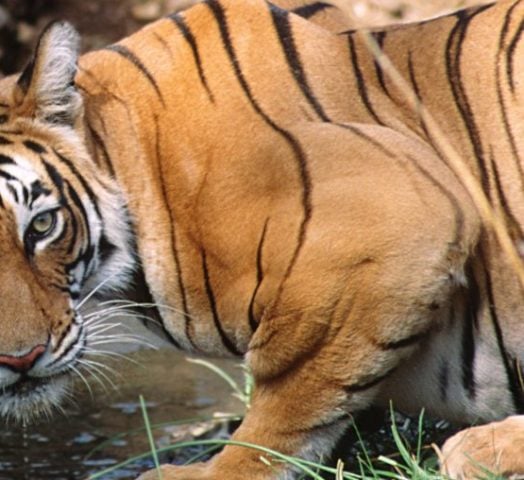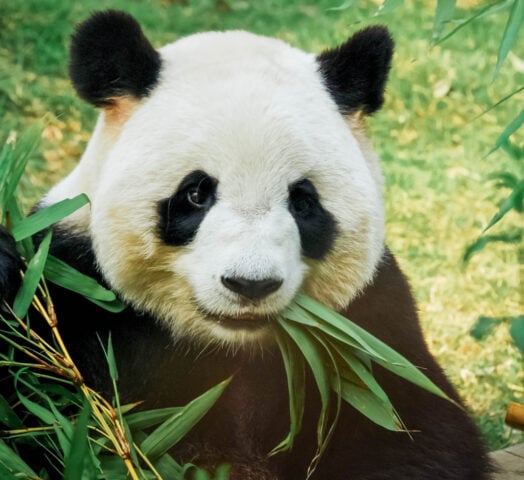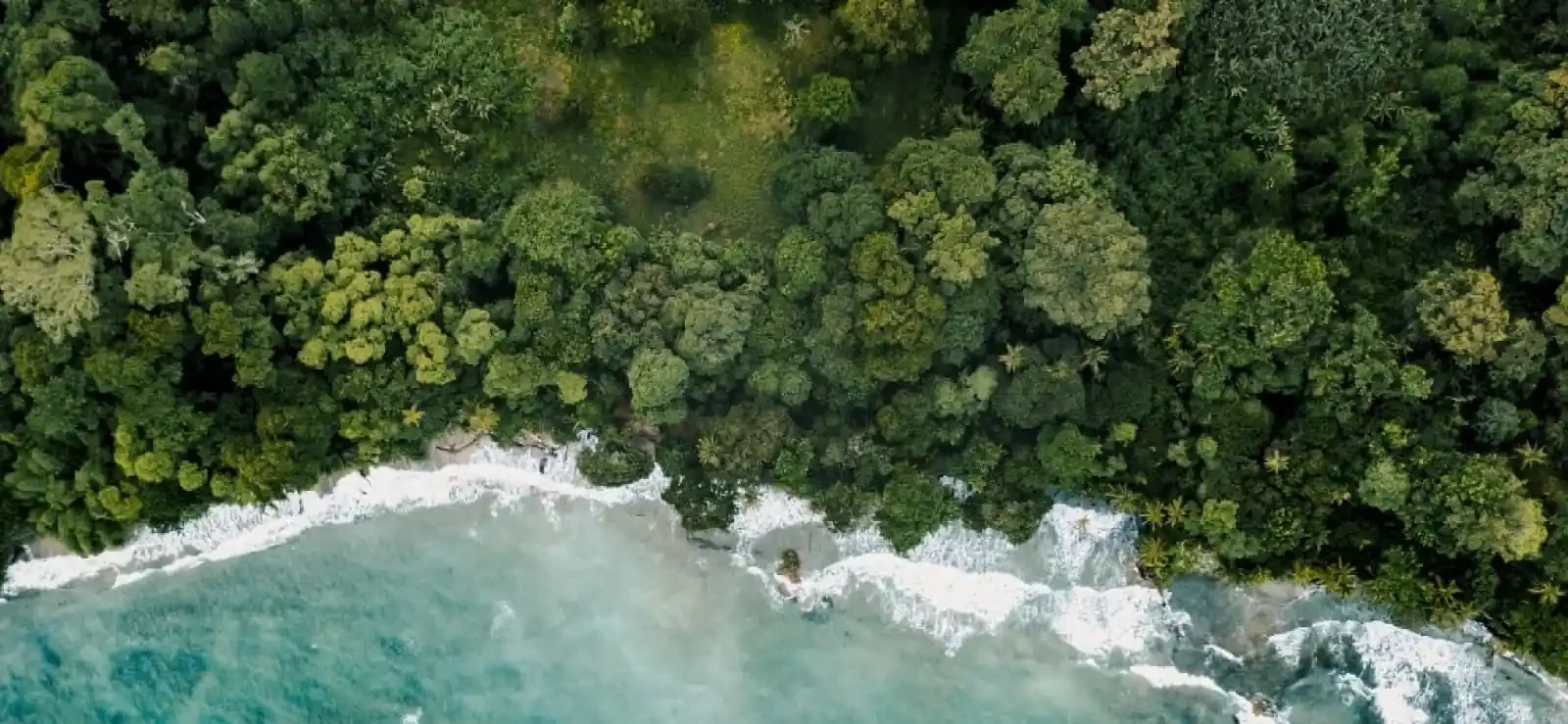A Family Adventure in Mongolia
Trip highlights
- Discover Buddhist artefacts at Choijin Lama Temple
- Get up close to Bactrian camels in the Gobi Desert
- Take a stroll through Sukhbaatar Square with its historic monuments
- Learn about the traditional art of Mongolian cheese making
- Visit the Flaming Cliffs, named for the orange glow of the rock at sunset.
- Spend time with traditional nomadic families
Bespoke trips with Jacada
We design one-of-a-kind journeys incorporating luxury in all its forms. Our bespoke trips include:
- Luxury accommodation throughout
- Privately guided tours
- Private transfers
- Meticulously selected experiences
- Expertise and support from your Jacada Concierge
- Days 1–2 Ulaanbaatar
- Days 2–5 Gobi Desert
- Days 5–6 Ulaanbaatar
- Days 6–9 Ulgii
- Days 9–13 Ulaanbaatar
- Days 1–2 Ulaanbaatar
- Days 2–5 Gobi Desert
- Days 5–6 Ulaanbaatar
- Days 6–9 Ulgii
- Days 9–13 Ulaanbaatar
Itinerary in detail
Every Jacada trip is tailored to your personal preferences and interests. Below you’ll find a sample itinerary to inspire your own custom-designed journey.
Welcome to Ulaanbaatar
You’ll find Mongolia’s busy capital, Ulaanbaatar, nestled on the banks of the Tuul River in a valley surrounded by four mountains. The skyline here is a mix of Soviet-era architecture, Buddhist monasteries and modern buildings with traditional gers dotting the city limits and retaining the country’s nomadic heritage. Go exploring with your private guide and you’ll discover a variety of museums and galleries all celebrating traditional Mongolian history, art, music and dance.
Where you could stay
Ulaanbaatar
Highlights
- 290 elegant and spacious guestrooms
- Four exciting dining options for any time of day
- A fun Adventure Zone for children to play
Overview
Located in the heart of Ulaanbaatar, this luxurious hotel is the perfect place to call home when you’re exploring the city and surrounds. It’s situated within easy walking distance of Government House and Great Chnggis Khan Square. The 290 elegantly appointed guestrooms are spacious and overlook either the Nairamdal Park to the south or Great Chinggis Khaan Square and the city panorama to the north. The rooms and public areas of the hotel are modern and follow a natural colour scheme with rich fabrics and patterned accents.
Shangri-La Ulaanbaatar offers you a variety of unique dining options. Enjoy all-day dining at Café Park, casual signature dishes at Naadam, speciality Chinese cuisine at Hutong and light bites and refreshments in the Lobby Lounge.
A highlight for families is the Adventure Zone playground at the Shangri-La Centre which welcomes children under 12. There are slides, climbing mazes and party rooms available to keep young travelers entertained.
→ Find out moreMake it mine
Buddhist artifacts
Historic square
Choijin Lama Temple
Join your guide for a visit to Choijin Lama Temple. Located between modern high rises, one of the architectural gems of Mongolia consists of a group of five temples. The Choijin Lama Temple museum houses various Buddhist artifacts dating back to the 1800s including the masterpieces of the famous Mongolian sculptor Zanabazar and the best collection of the tsam masks for the religious ceremonies in the country.
Sukhbaatar Square
Take a stroll through Sukhbaatar Square, named in honor of the revolutionary leader who commanded the Mongolian army to fight for the nation’s independence from Manchuria with the help of Russian army in 1920s. It is also the site of the Great Khans Memorial built in celebration of the 800th anniversary of the Mongolian Empire.
Escape to the Gobi Desert
The vast golden plains of the Gobi Desert are not only spectacular, but they are also home many of Mongolia’s nomadic people. Your time here is all about appreciating the natural beauty, and connecting with the culture and traditions that have prevailed over centuries. Your family can spend time with a nomadic family, learn about their herding practices, help to raise a traditional ger, participate in an archery lesson and spend your nights stargazing.
Where you could stay
Gobi Desert
Highlights
- Stay in a traditional Mongolian ger, built and furnished by local artisans
- Learn Mongolia’s historic archery techniques
- Sample authentic Mongolian dishes prepared with locally sourced ingredients
- Cultural and environmental sustainability are integral to the lodge’s ethos
- The lodge supports local communities, and is entirely staffed by Mongolians
- Learn about the nomadic lifestyle which still exists here
Overview
For those who want to truly experience Mongolia, Three Camel Lodge, way out in the wilds of the majestic Gobi Desert, is the place to go. It is the Desert’s first and only luxury eco-lodge, and sustainability and authenticity are not just part of the practice, but are integral to the ethos around which the lodge revolves.
Every aspect of your stay has been designed to preserve the land, wildlife, and cultural heritage of Mongolia and the Gobi Desert. The 40 cosy gers, or yurts, as well as the furniture within them, were all constructed by local artisans in keeping with authentic building methods. Inside, you’ll find thick camel-hair blankets and woollen carpets adding warmth and comfort to the hand-carved and painted furnishings. As well as a stove for heat, each ger has its own private bathroom.
The trend of simple luxury continues throughout, with the Arshaan spa offering western treatments complemented by eastern therapies, and artfully prepared meals at Bulagtai restaurant. Authentic Mongolian cuisine is given a contemporary twist and made entirely from locally sourced ingredients. Wash it down with a prized whisky at the Thirsty Camel Bar – regarded as one of the finest whisky bars in Asia.
Learn about the nomadic way of life as well as the traditions and customs which still pervade here. Visits with nomadic families are available, as are cooking classes, traditional archery lessons, and horseback riding. Mountain biking is also on offer; an ideal way to explore the vast beauty of your surroundings.
→ Find out moreMake it mine
Valley hike
Get cooking
Sand dunes
Sand dunes
Yol Valley National Park
Drive to Yol Valley National Park, cradled in the foothills of the Altai Mountains. An ancient river carved this surprisingly green valley, and its remnant streams create ice formations that sometimes persist as late as July. A hike through the valley leads to the habitat of indigenous vulture-like lammergeiers, Altai snowcocks, ibex, yaks, and Argali mountain sheep.
Cooking Class at Three Camel Lodge
Participate in a hands-on cooking class and learn to make some traditional Mongolian dishes. The whole family will learn how to make Mongolian buuz (steamed dumplings) and khuushuur (deep fried meat pockets).
Moltsog Els
Drive to Moltsog Els, one of the few regions of the Gobi covered by sand dunes. Imagine a giant sandbox, and you’ll begin to understand what kind of fun your family can have here. Explore the dunes on foot, and meet Bactrian camels. These wooly creatures are native to this region and are only found in Central Asia.
See more
Nomadic life
Ancient art
Glowing sunsets
Glowing sunsets
Visit a nomadic family
Visit a nomadic family and spend an afternoon learning more about their way of life. Help to herd the animals and milk them or perhaps learn how to prepare milk tea or a dairy product. About 30% of Mongolia’s population still lead a nomadic way of life and move from pasture to pasture living in harmony with nature and off the land.
Havsgait petroglyphs
Take a steep hike up Havsgait Mountain for panoramic views of the grasslands and to see some amazing artwork of our ancestors. Preserved at the top of the mountain are some of the precious petroglyphs of the Gobi, ancient works of art that can be clearly seen as the sun hits the rocks from the right angle. From the depictions of these petroglyphs, we can gain a better understanding of the everyday lives of the people who lived in the Gobi during the Bronze Age.
Flaming Cliffs
Visit the legendary Flaming Cliffs, named for the orange glow of the rock at sunset. The red sandstone of the Flaming Cliffs is rich with dinosaur fossils, and paleontological expeditions continue to make significant discoveries at this site.
Overnight in Ulaanbaatar
Fly back to Ulaanbaatar in the morning where you’ll spend the rest of the day and night before continuing with your journey. While here, you’ll visit Gandan Monastery, the seat of Buddhism in Mongolia. Although many of the Buddhist monasteries were destroyed or converted into museums during the Stalinist purges of the 1930s, Gandan Monastery continued to operate as a showpiece for government officials. Strolling through the monastery grounds you’ll hear the low tones of the horns used to call the lamas to the temple and observe their daily rituals. Visit the renovated Chenrezi and Kalachakra Temples, as well as the magnificent statue of Migjid Janraisig, ‘the lord who looks in every direction’.
You’ll also visit the Ger District where 60% of Ulaanbaatar’s population lives. Spend some time at GerHub, a non-profit organisation that seeks to help nomadic families who reside in the Ger District of Ulaanbaatar. The organisation works towards finding innovative and creative solutions to some of the most pressing issues connected to infrastructure here, like central heating, plumbing and running water. You can learn more about their community centre which is used for talks, workshops and training.
Where you could stay
Ulaanbaatar
Highlights
- 290 elegant and spacious guestrooms
- Four exciting dining options for any time of day
- A fun Adventure Zone for children to play
Overview
Located in the heart of Ulaanbaatar, this luxurious hotel is the perfect place to call home when you’re exploring the city and surrounds. It’s situated within easy walking distance of Government House and Great Chnggis Khan Square. The 290 elegantly appointed guestrooms are spacious and overlook either the Nairamdal Park to the south or Great Chinggis Khaan Square and the city panorama to the north. The rooms and public areas of the hotel are modern and follow a natural colour scheme with rich fabrics and patterned accents.
Shangri-La Ulaanbaatar offers you a variety of unique dining options. Enjoy all-day dining at Café Park, casual signature dishes at Naadam, speciality Chinese cuisine at Hutong and light bites and refreshments in the Lobby Lounge.
A highlight for families is the Adventure Zone playground at the Shangri-La Centre which welcomes children under 12. There are slides, climbing mazes and party rooms available to keep young travelers entertained.
→ Find out moreExplore the Tsambagarav Mountains
Fly to Hovd and then drive to Tsambagarav Mountain Area where you’ll find Three Eagle Camp located at the base of permanently snow-capped Tsambagarav Mountain. The valley is home to the Uuld community of people, descended from the Zungarian Empire that rose after the fall of the Yuan Dynasty. One of the wildlife highlights of this region is the stunning Khar Yamaat canyon. Take a hike here, keeping an eye out for the elusive Siberian ibex. This species of mountain goat is known for its impressive horns and can often be spotted in the rocky terrain of the valley.
Where you could stay
Ulgii
Highlights
- Traditional Mongolian ger suites with cozy wood stoves
- Excellent hiking trails and stunning views over the plains
- Restaurant ger that doubles as a lounge
- Opportunities to spend time with local families learning about their traditions
Overview
Settle into your comfortable Mongolian ger suite at Three Eagle Camp and enjoy and authentic Mongolian experience perfect for the adventurous traveler. The camp is located at the foot of the majestic, snow-capped Tsambagarav Mountain and the area around it is home to the Kazakh and Uuld people who have lived here for centuries. As a result, there’s a strong emphasis placed on respectfully preserving the culture and environment at Three Eagle Camp.
The traditional ger suites are furnished with handcrafted wooden beds, tables and chairs, and each has an en-suite bathroom with a hot shower. The gers are heated by wood stoves, providing needed warmth during the chilly evenings. Dining takes place in an inviting restaurant ger that also serves as a comfortable lounge where you can relax and drink in your beautiful surroundings.
Head out into the stunning Altai Mountains to discover excellent hiking and walking trails, go horseback riding or spend some time with welcoming local families learning about their culture and age-old traditions. Walks take you through verdant valleys and beside crystal-clear streams, while hikes seen you trekking up the rugged Altai slopes being rewarded with astounding views of the sweeping plains and distant peaks.
→ Find out moreMake it mine
Nomadic life
Horsemanship
Golden eagles
Golden eagles
Dairy and archery tour
Spend some time with a local nomadic family learning about their way of life. There is strong emphasis on dairy and dairy products. Every region has their own ways of making dairy products. The most common is called ‘aaruul’ or simply hardened milk curd. You can also delve into the ancient art of archery as the local family guides you through the intricacies of crafting bows and arrows.
Tinge Ilu games
Witness the horsemanship of the local nomads as they demonstrate how they lasso horses and ride bare back. Followed by Tinge Ilu, a game of grabbing coins from the ground while riding a horse. Another fun game is the Kizguar, a Kazakh dating horse game, where the young men and women can chase each other on horseback and be rewarded with kisses on the cheek if they fancy each other.
Falconry demonstration
For over a millennium the Kazakh’s have been practicing the art of falconry, a tradition passed down from their Turkic ancestors, using golden eagles. Weighing up to fifteen pounds, the females are nearly one-third bigger than the males and their vision is eight times more acute than the human eye. Through the winter months the Kazakhs hunt foxes, rabbits and marmots, with their eagles. Learn about how they care for the eagles and see a demonstration.
Festive Ulaanbaatar
In the morning you’ll drive to Ulgii and then fly back to Ulaanbaatar for the Naadam Festival opening ceremony. The celebrations begin with a colourful parade of soldiers, athletes, musicians and people dressed as ancient warriors. Dedicated to the ‘Three Manly Games’, this is Mongolia’s most popular festival. The games in questions are archery, wrestling and horseracing. For the archery, small round leather targets are placed at a distance of 60-100 meters from the archers, who still use formidable compound bows made from wood, horn, and sinew. In wrestling, before the match begins, the wrestlers perform the “eagle’s dance” symbolising power and invincibility. The wrestler who forces his competitor to touch the ground with his knees or elbow is considered the winner. In the horseriding component, riders as young as six years old compete with and without saddles.
Where you could stay
Ulaanbaatar
Highlights
- 290 elegant and spacious guestrooms
- Four exciting dining options for any time of day
- A fun Adventure Zone for children to play
Overview
Located in the heart of Ulaanbaatar, this luxurious hotel is the perfect place to call home when you’re exploring the city and surrounds. It’s situated within easy walking distance of Government House and Great Chnggis Khan Square. The 290 elegantly appointed guestrooms are spacious and overlook either the Nairamdal Park to the south or Great Chinggis Khaan Square and the city panorama to the north. The rooms and public areas of the hotel are modern and follow a natural colour scheme with rich fabrics and patterned accents.
Shangri-La Ulaanbaatar offers you a variety of unique dining options. Enjoy all-day dining at Café Park, casual signature dishes at Naadam, speciality Chinese cuisine at Hutong and light bites and refreshments in the Lobby Lounge.
A highlight for families is the Adventure Zone playground at the Shangri-La Centre which welcomes children under 12. There are slides, climbing mazes and party rooms available to keep young travelers entertained.
→ Find out moreMake it mine
Explore Ulaanbaatar
Museum and music
City highlights tour
Begin your day with a quick walk to the Chinggis Khan Museum, Mongolia’s newest and largest museum. The museum showcases over 10,000 cultural exhibits revealing 2,000 years of history. Then join a paleontologist for a behind-the-scenes tour of a local laboratory and examine the latest batch of dinosaur fossils excavated from the field. After lunch, head to Zanabazar Fine Arts Museum which contains one of the best collections of Buddhist art and artifacts in the world.
National Museum visit
Visit the National Museum for an excellent overview of Mongolia’s history and culture. The newly remodeled museum displays traditional implements of daily nomadic life including Stone and Bronze Age artifacts, historical costumes of Mongolia’s minority tribes, sacred religious relics, and agricultural, fishing, and hunting equipment. Then in the evening enjoy a performance featuring traditional Mongolian dancers and khoomi throat singers, followed by farewell dinner.
Why book with Jacada
Personalised design
We’ll plan your trip around your personal interests, tastes and preferences, providing honest advice based on first-hand knowledge.
Authentic experiences
Our expert guides and brilliant Concierges are hand-picked for their ability to bring your destination to life with care and passion.
Positive Impact
We seek out unforgettable experiences that benefit both local communities and the environment.


































































